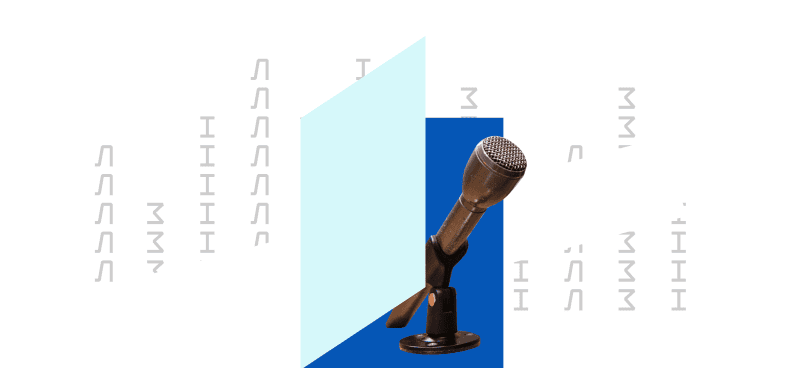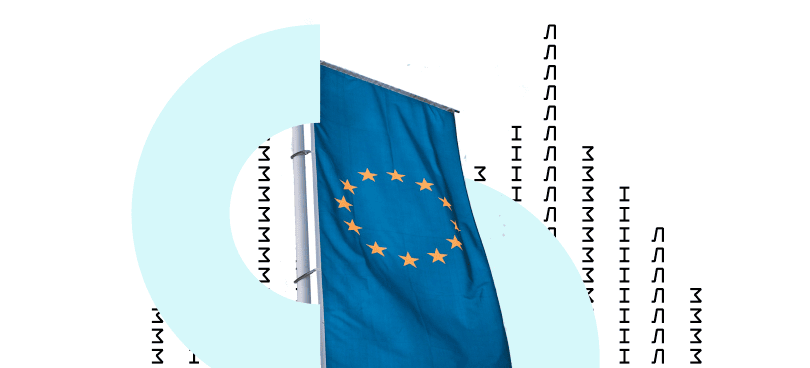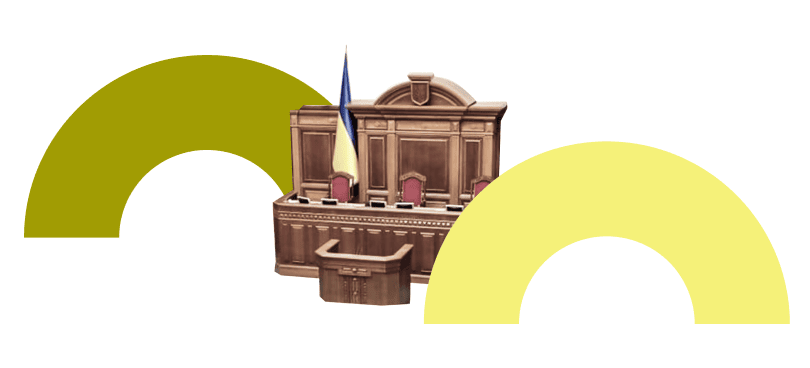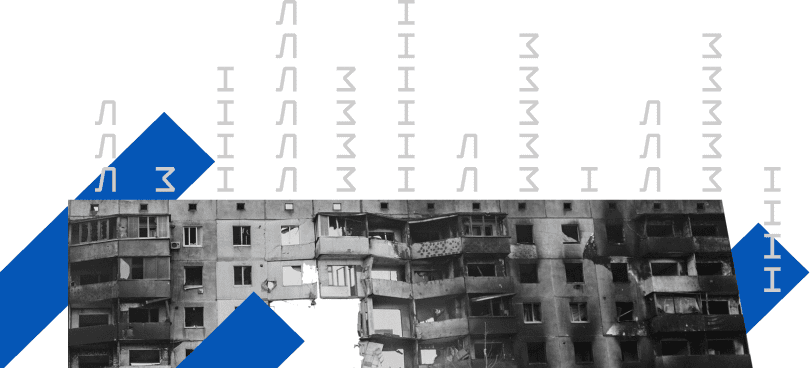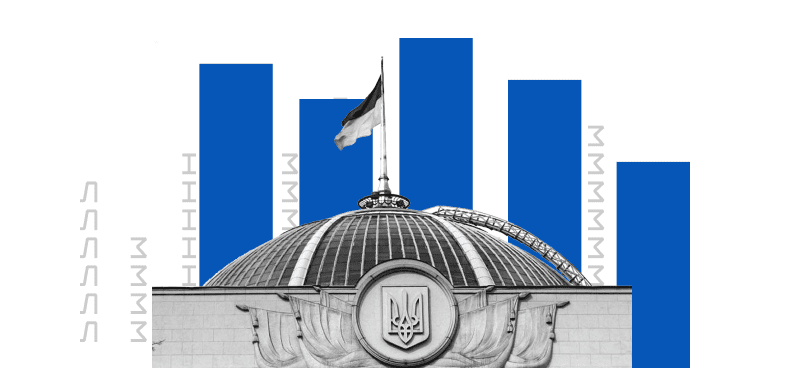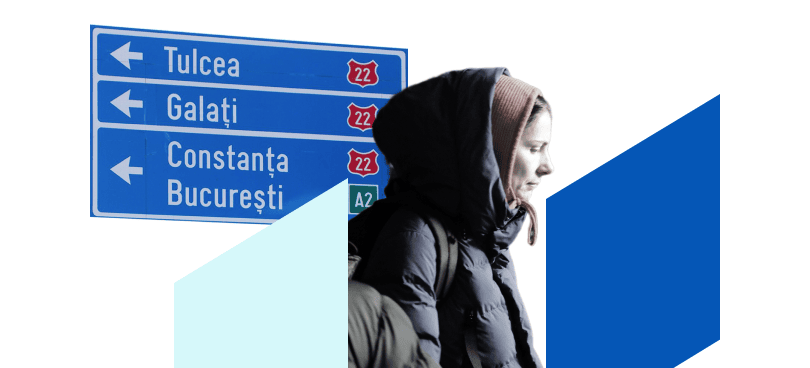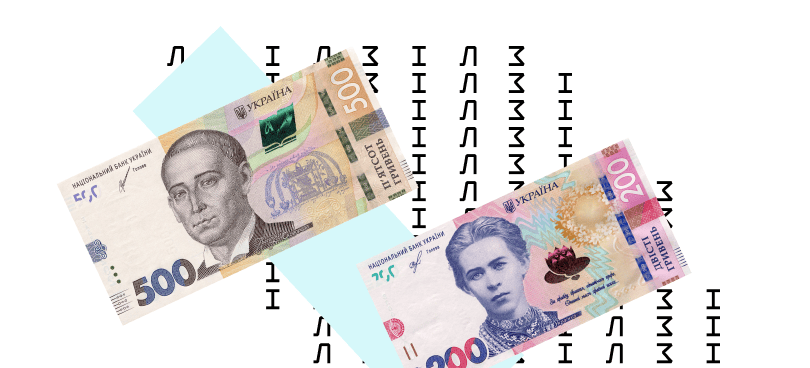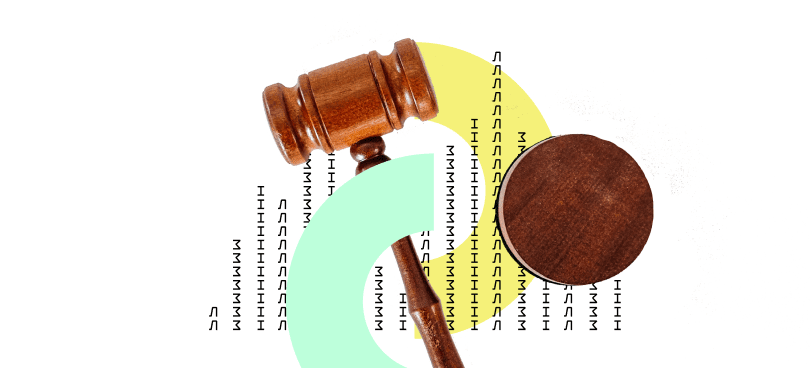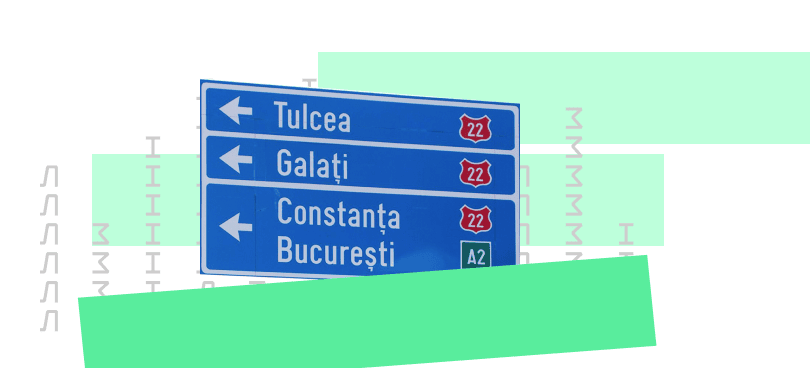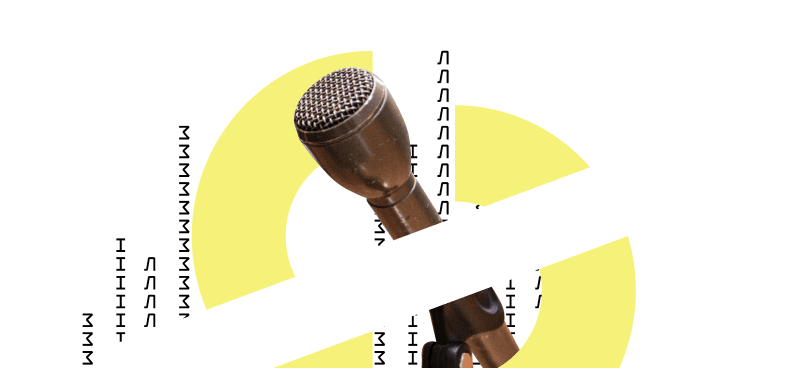Verkhovna Rada is one of the most important state institutions. It was that before, but during the war, the Verkhovna Rada increased its importance even more. If, on February 24, the members of the Verkhovna Rada had dispersed and had not approved the President’s decrees on the introduction of martial law and general mobilization, had not adapted the legislation, and had not redistributed budget funds. It would have made a compelling and centralized state counteraction to Russian aggression impossible.
Oleksandr Kornienko noted that “The beginning of armed aggression and the introduction of martial law created many challenges in the work of the Verkhovna Rada of Ukraine, starting from the danger of holding long meetings of MPs and the difficulty of moving around the territory of Ukraine, ending with the impossibility of using traditional forms of communication […] Despite difficult times, the Parliament continued to be the heart of democracy since the first day of the full-scale invasion. After all, the citizens delegated the MPs the right to make decisions in tough times. And through dialogue between parliamentarians and civil society representatives, this heart beats even stronger in wartime”.
The full-scale invasion, in turn, also affected the MPs and the Verkhovna Rada. A lot of time has passed since February 24, the seventh regular session of the Verkhovna Rada ended, so it is possible to analyze how the full-scale invasion affected the work of the Verkhovna Rada. This analysis can have the following structure:
- Adaptation of legislation to the conditions of a full-scale war
- Reducing the influence of pro-russian politicians
- Security measures of the Verkhovna Rada
- Unexpected effects of war
Adaptation of legislation to the conditions of a full-scale war
| Month | Number of laws per month | Number of laws, breakdown by meeting* |
| February | 1 | 1 |
| March | 51 | 14+21+16 |
| April | 34 | 14+11+9 |
| May | 37 | 7+9+12+9 |
| June | 22 | 15+4+3 |
| July | 65 | 7+8+8+8+6+11+5+12 |
| August | 19 | 10+6+3 |
* Each of the numbers in the lines below represents the number of laws passed in one meeting
March is the most exciting month for understanding how legislation was adapted to full-scale war. To begin with, you can pay attention to the intensity of the adoption of laws. If the MPs usually adopted up to 10 laws per meeting in May-August, then in March – 14-21 laws per meeting. This indicates a greater need for new laws and a greater danger of holding meetings in March.
As for content, the agenda of the Verkhovna Rada was completely updated in March: old draft laws lost their relevance, giving way to those draft laws that were supposed to help in the confrontation with russia. Only 7 out of 51 (13.7%) laws adopted in March were registered by February 24. That is, all other laws related to adaptation to new conditions. For comparison, in just six months of the war (February 24 – September 6), 28.8% of laws were registered by February 24. This is twice the level of March.
The laws adopted in March can be divided into 4 categories according to their content:
- Financial adaptation:
- Redistribution of budget expenditures
- Tax rules
- Reporting rules
- Counteraction to russian influence:
- Antidote to russian propaganda
- Punishment for collaborationism
- Resistance movement activity
- Participation of civilians in defense of Ukraine
- Seizure of Russian property
- Ensuring internal stability and security
- Activities of courts under martial law
- Activities of law enforcement agencies under martial law
- Fight against looting
- Investigative actions under martial law
- Food security
- Fighting cybercrimes
- Ensuring the functioning of registers
- Punishment for selling humanitarian aid
- Labor relations during martial law
- Conscripts and veterans
- Exemption of some categories of citizens from mobilization
- Provision of combat immunity
- Increasing payments and social guarantees for veterans
Many imaginary options can be constructed as to what should be the priority for a state at the start of a full-scale war, but in reality, these four blocs appeared to be the first response to the invasion.
Such was the first month of adaptation of the Verkhovna Rada to the war. However, the adaptation continued even after that. Priority needs have changed to more long-term and less urgent draft laws. But there were still many such needs. From February 24 to the end of the 7th session (September 6), adopted 229 laws (data only on laws adopted by the Verkhovna Rada as a whole. Resolutions, appeals, vetoed laws and proposals of the President were not taken into account).
The number of laws passed during the 7th session during which martial law fell is a record number of laws passed during one session for the third to ninth convocations (data for the first two convocations are not available in the open data format on which the calculation was based).
If we consider the ninth convocation, half as many laws were adopted during the entire 6th session as during six months of the war; another comparison – 229 laws are more than were adopted during the 3rd and 4th session of the ninth convocation together.
The record number of adopted laws is the result of joint efforts of MPs and employees of the Apparatus of the Verkhovna Rada. Achieving political consensus, expert-analytical processing, and processing of draft laws in committees – all these processes have been significantly accelerated. For example, the time for drafting draft laws in committees, compared to the 6th session, decreased by 12-200 days, depending on the committee. The overall speed of adoption of draft laws, in comparison with the 6th session, has also significantly increased. Half of all draft laws passed in the first reading and, as a whole were passed in less than 8 days. For 80% of such draft laws, the time for adoption decreased by 10-100 days. The time spent processing draft laws between the first reading and adoption in the second reading has also decreased. For 70% of such draft laws, the time was reduced by 30-112 days. For 70% of draft laws adopted in the second reading and as a whole, the time from registration to adoption also decreased by 42-168 days.
Moreover, the number of days required for the draft law’s adoption correlates (there is a moderate positive correlation according to the Spearman method, rho = 0.46, p-value = 2.986e-13) with the number of days that have passed since February 24. In the first days/weeks/months after February 24, draft laws went from registration to adoption faster than later.
The rest of the agenda ensured such indicators, that is, the adoption of newly registered draft laws and the mobilization of MPs and employees of the Apparatus of the Verkhovna Rada, which were able to speed up the passage of draft laws significantly.
Another feature of Verkhovna Rada’s adaptation to martial law was the workload division between committees. If we compare the number of submitted conclusions to draft laws for the 6th session and during the six months of the war, the number of submitted conclusions increased the most:
- Committee on National Security (+ 48 provided conclusions),
- Committee on Finance (+ 39 provided conclusions)
- Committee on Economic Development (+ 36 provided conclusions)
The Committee on Social Policy reduced the number of submitted conclusions the most during the six months of the war (-15 submitted conclusions). In addition, the Committee on Law Enforcement was very busy during the 6th session and martial law. This committee provided 71 conclusions during the six months of the war.
Thus, these four busiest committees show the highest priority needs and areas of work of the Verkhovna Rada in conditions of full-scale war: national security, redistribution of finances, maintenance of law and order, and support of the economy.
The situation when a large number of laws are considered and adopted in a short time is what I would like to call a “turbo regime.” At least, such a name will suit the work of the Verkhovna Rada during martial law more than the work of the Verkhovna Rada during 1-2 sessions. After all, during the six months of the war, one and a half times more laws were adopted. Some of the terms of the passage of draft laws were shorter than during 1-2 sessions. However, the number of violations of the legislative procedure during 1-2 sessions was more significant than during martial law. During six months of the war, the share of laws that had procedural violations was 41-67% (depending on the type of violation). And during 1-2 sessions, it was 45-83%. The violation of the procedure is, to some extent, a payment for the high speed of passage and a significant number of adopted laws. Oleksandr Kornienko noted that the violations are directly related to martial law: “what is a violation in peacetime is a normal practice for the work of the parliament under martial law”.
Another negative manifestation of adaptation to martial law conditions is unusual parliamentary practices— for example – «matryoshka» laws. “Matryoshkas” can be called laws, the content of which cannot be guessed from the name alone because one word hides several laws, different in Regulation and content. Usually, such laws have one range and focus at the first reading stage. But then amendments are made to them, which add completely new provisions that were not only not considered during the first reading but also belong to a different area of Regulation. This practice is a violation of Part 1 of Art. 116 of the Regulation:
Proposals and amendments to the draft law, prepared for the second reading, can be made only to the text of the draft law (sections, chapters, articles, parts, clauses, subsections, paragraphs, sentences) that the Verkhovna Rada adopted as a basis. As an exception, the main committee may consider the proposals and amendments made regarding corrections, clarifications, and elimination of errors and/or contradictions in the text of the draft law. Other structural parts of the draft law and/or other legislative acts that were not considered in the first reading if the need for their introduction as indicated in the conclusions of this main committee and/or expert division of the Apparatus of the Verkhovna Rada and announced by the chairman of the plenary session during the consideration of such a draft law in the first reading. Such proposals and amendments must correspond to the subject of legal Regulation of the draft law.
For example, we can mention two cases. The first example – the Research Service of the Verkhovna Rada was created through the adoption of the Law of Ukraine “On Amendments to Certain Legislative Acts of Ukraine Regarding the Peculiarities of Proceedings in Cases of Establishing the Fact of Birth or Death of a Person in Conditions of Martial Law or State of Emergency and in Temporarily Occupied Territories.” Establishing birth or death is quite far from the parliamentary research service. However, these two unrelated issues were merged into one law.
The second example is the Law “On Amendments to Certain Laws of Ukraine Regarding the Functioning of the Civil Service and Local Self-Government During the Martial Law.” The version of the first reading, it referred to the distribution of powers between local self-government bodies and military administrations. And at the stage of amendments to the second reading, provisions were added that expanded the powers of the Verkhovna Rada and the President (in particular, based on these new norms, the Verkhovna Rada Commissioner for Human Rights was dismissed). The new provisions added to the second reading not only did not correspond to the subject of legal regulation of the draft law in the wording of the first reading but also violated the Constitution (in fact, they expanded the powers of the Verkhovna Rada and the President).
According to Oleksandr Kornienko, the need to adopt draft laws is also due to the war: “The practice of introducing the draft into the original text before the second reading is not extremely common, but sometimes it is necessary. Such a mechanism saves time for prompt decision-making or in cases where the issue is consensual and does not require additional procedures of passage and discussion. As in the case of the Research Service […] Therefore, in conditions of war or emergency, this practice is acceptable”.
In addition to “matryoshka”, during martial law, the cases when draft laws are revised after voting on the text of this draft law have become much more frequent. At the same time, the Verkhovna Rada almost always authorizes amendments to draft laws. It isn’t easy to find a case when a draft law is adopted differently. The essence of the revision mechanism is that MPs need to see the final text of the draft law they are voting on. The final text is determined not by people democratically elected and authorized to adopt laws but by the Apparatus employees. These employees may be more qualified in the issues of normative design and technical and legal nuances of the law-making process, but they need a direct mandate to adopt laws. Experts note that in the first months of the functioning of the Verkhovna Rada of the ninth convocation, the practice of authorizing amendments was necessary to ensure the minimum quality of the adopted laws in conditions of lack of experience and knowledge. However, later its purpose was forgotten, and currently (despite the MPs gaining experience and knowledge of standard design), the revision is used everywhere.
The assessment of the practice of universal refinement is different. Some experts consider this practice extremely negative. The negative evaluation of this practice is based on the position that MPs do not see the final text for which they are voting. This means both spaces for violations and manipulations with the final text and the limitation of the MP’s mandate. Other experts consider this practice acceptable. This position is based on the fact that, in most cases, minor technical and legal editing is carried out, and the essence of the law remains the same. Oleksandr Kornienko adheres to this position: “The procedure itself to a greater extent concerns the legal style of the text and the documentary design of the law, ways of constructing its text, requisites, etc. […] And the prescription “technical and legal refinement” is a tool for improving the legal perfection of the text of a draft law or law”.
Reducing the influence of pro-russian politicians
The term “pro-russian politicians” is used for MPs who were part of the “Opposition Platform for Life” faction, taking into account the decision of the National Security Council of March 18, 2022, according to which the activities of the party of the same name were suspended due to “anti-Ukrainian political and organizational activities (…) demonstration of manifestations collaborationism (…) dissemination of information about the justification, recognition as legitimate, denial of the armed aggression of the russian federation against Ukraine”.
The main event that testified to the decrease in the influence of pro-Russian politicians was the dissolution of the “Opposition Platform for Life” (OPFL – ex-party of former fugitive president Yanukovuch). As of the beginning of the full-scale invasion, about a quarter of the MPs of this faction left Ukraine, and some turned out to be state traitors. Gradually, some MPs began to leave this faction. On March 20, it became known about the National Security Council’s decision to ban some parties’ activities, including the Opposition Platform for Life faction. However, it did not discuss the faction’s activities.
On April 14, it was announced that the activity of the Opposition Platform for Life faction was suspended, as it were, based on the decision of the National Security Council. Although neither the decision of the National Security Council nor the version of the Regulations of the Verkhovna Rada in force at that time nor other legislative acts provided the possibility of suspending the activities of the faction, even under the condition of suspending the activities of the party.
As of April 14, those MPs who were still part of the Opposition Platform for Life faction reacted to the announcement of the suspension of the faction’s activities. On April 21, they created the parliamentary group “Platform for Life and Peace”. According to Art. 59 of the Regulations, a MP may belong to only one faction or group. Therefore, the entry of these MPs into the Platform for Life and Peace led to the fact that these MPs ceased to be members of the Opposition Platform for Life faction. This, in turn, led to the fact that the number of MPs in the Opposition Platform for Life faction fell below the minimum set level. And by Part 4 of Art. 60 of the Regulations, on May 12, the dissolution of the “Opposition Platform for Life” faction was announced precisely based on a decrease in its numerical composition.
A month later, on May 22, the MP group “Recovery of Ukraine” was created. It included mainly those MPs who left the Opposition Platform for Life faction before April 14.
On May 3, a law was adopted, according to which the suspension of the party’s activity entails the suspension of the faction’s activity, and the banning of the party leads to the dissolution of the faction. This law entered into force on May 18. That is, the dissolution of the Opposition Platform for Life faction is not related to its activities, the National Security Council’s decisions, or the party’s banning. At the same time, the MPs of this faction are not deprived of mandates because there is an exclusive list of constitutional grounds for this, which still need to be satisfied.
MPs who were part of Opposition Platform for Life faction significantly reduced their parliamentary activity. Before the dissolution of the Opposition Platform for Life faction, MPs of this faction initiated only 2 draft laws during the six months of the war; another 4 draft laws were created by MPs from the newly formed group of the Platform for Life and Peace (i.e., former members of the Opposition Platform for Life faction), and another 10 draft laws were initiated by MPs of the “Restoration of Ukraine” group. The groups “Restoration of Ukraine” and Platform for Life and Peace were created mainly by MPs from the disbanded Tthis Platform. For comparison, MPs from the “For the Future” group initiated 9 draft laws, and from the “Trust” group – 4 draft laws. If we compare these indicators with the indicators of the factions, the MPs of the “Fatherland” faction initiated 24 draft laws; all other factions initiated even more draft laws. The MPs who were part of the Opposition Platform for Life faction continued to create draft laws, although less than at the pre-war level.
Nevertheless, draft laws registered by former members of the Opposition Platform for Life faction remain laws. At the same time, all other factions and groups (their MPs) initiated at least one adopted law. As for the draft laws considered in the hall, only one draft law initiated by the MP from “Restoration of Ukraine” was considered in the session hall. Draft laws initiated by MPs from Opposition Platform for Life faction were not considered in the hall.
The decline in the influence of pro-Russian politicians is partly due to their physical absence from Ukraine. Ilya Kyva, a former MP and member of the Opposition Platform for Life faction, left Ukraine before the war and later lost his mandate as an MP. Another part of the MPs left Ukraine and, during the six months of the war, did not return at all or almost did not return. The most famous are Vadym Rabinovych, Vadym Stolar, Hryhorii Surkis, Serhii Lyovochkin, Nataliia Korolevska, Taras Kozak. And Viktor Medvedchuk escaped from custody, then he was found and arrested, and in the end, he was exchanged for Ukrainian prisoners of war. Of the well-known and influential former members of the Opposition Platform for Life faction, only the head of the faction, Yurii Boyko, remained in Ukraine and continued to work in the parliament.
Security measures of the Verkhovna Rada
The parliament’s most predictable and logical reaction to full-scale hostilities was strengthening security measures. Security in many dimensions: security of plenary sessions, security of the MPs, cyber security, and information protection.
With the invasion’s beginning, the Verkhovna Rada meetings began to be held semi-secret. Meetings are not broadcast live, and the general public needs to be informed about them. The corridors of the Verkhovna Rada are closed to journalists (except representatives of the Rada TV channel). The territory around the Verkhovna Rada is also completed. And the entrance to the “government quarter,” in which the Verkhovna Rada is located, is carried out with special passes.
In the spring, MPs were informed about the meeting 2-3 days in advance to get to Kyiv. Such secrecy is necessary given the danger of rocket attacks on the parliament. In March, the Verkhovna Rada was in the zone of potential impact by russian Multiple rocket launcher, but even after the retreat of the russians from near Kyiv, there is a danger of impact by ballistic or cruise missiles. Despite the threat, MPs held and continue to hold meetings in the building at Hrushevsky 5 St.
The main advantage of such a decision is the high level of legitimacy of the parliament and its decisions because if MPs held meetings in another building (even in Kyiv), it could cause panic regarding the escape of MPs. The disadvantage is the threat of a rocket attack and the killing of some MPs. As a result, Verkhovna Rada may lose the opportunity to make legal decisions. The danger forced the MPs to consider draft laws in the session hall quickly.
For example, 90% of all laws adopted in the first reading were considered in the hall for less than 2 minutes. And if the law passed two readings and both took place after February 24, then for half of such draft laws, consideration took up to 6 minutes.
One reading took 2-3 minutes, which is time for 1 performance and 2-3 lines.
Moreover, the amount of time spent considering the draft law in the session hall correlates (there is a moderate positive correlation according to the Spearman method, rho = 0.57, p-value = 2.2e-16) with how many days have passed since February 24. In the first days/weeks/months after February 24, draft laws were considered in the session hall more quickly than later.
For the physical safety of the MPs, they had the opportunity to obtain firearms. Firearms were distributed in late February, at the beginning of a full-scale invasion. Then there was information that they wanted to “physically destroy the MPs or force them to vote on the surrender documents.” Representatives of almost all factions and groups took advantage of this opportunity.
Another measure for the security of MPs was the closure of information about them. On the website of the Verkhovna Rada, information about MPs (personal pages of MPs) still needs to be made available. In addition, from March to April 21, data is only available regarding the votes of MPs, as changes were made to the settings of the Rada-3 voting system.
The Verkhovna Rada also partially secures information on the work of the Conciliation Council and committees. The Conciliation Council is now meeting in a secure session. Some committees have also switched to a closed work mode – they do not publish protocols, transcripts, or meeting information. Most reports were closed by the Committee on National Security and the Committee on Law Enforcement Enforcement. Such measures make it possible to control information about what Verkhovna Rada is planning in the future.
Unexpected effects of war
The Constitution of Ukraine grants the right of a legislative initiative to three subjects – the President, the Cabinet of Ministers, and MPs of the Verkhovna Rada. All of them used this right during the war. However, the war unexpectedly changed the distribution of roles between these subjects in the legislative process.
War is an emergency, a crisis, and in times of war and emergencies, power is usually concentrated in the hands of a small circle of people for efficient and prompt decision-making.
Therefore, one could expect a strengthening of the Government’s role in the legislative process and a simultaneous weakening of the position of MPs. But this did not happen, at least from a formal point of view.
The Government reduced the share of registered draft laws to 10%, registering 62 draft laws during the six months of the war (usually, the Government registered about 100 draft laws per session). While MPs of the “Servant of the People” faction initiated almost 62% of draft laws, which is a record share for the entire ninth convocation.
The average time to receive the committee’s opinion on the first reading has more than halved, compared to the 6th session, both for the President and MPs. But the average time for obtaining conclusions for the Government has increased. The situation is similar for the passage of draft laws. The time from registration to the adoption of the draft law, in the second reading and as a whole, for MPs decreased by a third, while for the Government, it remained at almost the same level. At the same time, we cannot rule out the possibility that the Government formally registered the most urgent initiatives through MPs. One of the possible reasons is the formalized and complex procedure for developing and approving the text of the draft law by the Government and the absence of formal requirements for the preparation of parliamentary draft laws.
Many more exciting changes occurred with the legislative role of the President. The President has almost wholly distanced himself from domestic politics. 28 of the 30 adopted presidential laws are ratifications, international agreements, and approving decrees (continuation of mobilization and martial law). The other two laws are relatively symbolic:
- Amending Article 73 of the Labor Code of Ukraine regarding establishing a holiday – the Day of Ukrainian Statehood – was adopted in the first reading and as a whole.
- Establishment of legal and social guarantees for citizens of the Republic of Poland who are in the territory of Ukraine – adopted in the second reading and in general.
That is, the President reduced his law-making activity. During the six months of the war, the decision-makers (in terms of legislative changes) regarding domestic policy were the Government and members of the Verkhovna Rada.
However, the draft laws of these subjects still need to undergo approval by the President. His busyness can explain changes in the legislative role of the President with other areas of work, and this should not be perceived as necessarily negative. It is possible that martial law demonstrated (by showing in critical conditions) the distribution of spheres of responsibility in power should be based on what principles the distribution of spheres of power should be.
The President should not be responsible for anything except the sphere of politics. The power system will be unstable if all decisions and policies depend on one person. From this point of view, the President made the right choice and did not interfere in domestic politics, instead concentrating on foreign policy – a traditional niche for heads of state.
Another unexpected effect of a full-scale war is the depoliticization of parliament. The scale of political life and political discussions (political in the sense of politics) has significantly decreased since February 24, especially in the spring. It gradually began to recover in the summer, but it still had insignificant volumes. But the military actions, closure of meetings, and information about the work of the Verkhovna Rada also significantly reduced political statements and discussions in the parliament itself.
Previously, MPs tried to speak from the podium for any reason, using all available time (15 minutes for the first reading and an unspecified amount of time to consider amendments in the second). During six months of the war (as already mentioned), 90% of all laws adopted in the first reading were considered in the hall for less than 2 minutes. And if the law passed two readings and both took place after February 24, then for half of such draft laws, consideration took up to 6 minutes. One reading usually took 2-3 minutes, which is time for 1 performance and 2-3 lines. According to the testimony of the MPs, speeches began to be devoted to the essence of laws and constructive discussion. Meetings of the Conciliation Council were also closed, which led to its members stopping using this platform for political statements. In this unexpected way, one of the recommendations of the Mission of the European Parliament was implemented.
On this occasion, Oleksandr Kornienko noted: “the meeting hall was transformed from a platform for debating political positions into a place for making constructive decisions to ensure the country’s vital activities in conditions of armed aggression. At the same time, most of the discussions, as I already mentioned, moved to the preparatory stage in the format of meetings, active interdepartmental working groups, round tables, and work at the level of subcommittees and Committees of the Verkhovna Rada”.
The Verkhovna Rada spent only 36 hours of total time considering draft laws. This is half as much as in session 6 (84 hours) and three times less than was spent during session 5 – the previous spring session (134 hours). But at the same time, a record number of laws were adopted during the third-ninth convocation of the Verkhovna Rada.
That is, during the six months of the war, the parliament lost some of its functions as a platform for expressing political positions and as a place for political discussions and, in many ways, became a voting machine, that is, a body that adopts many laws in a short period.
Results of the work of the Verkhovna Rada during six months of the war
During the six months of the war, the Verkhovna Rada was able to mobilize, demonstrating a high pace of processing draft laws and a record number of adopted laws. At the same time, high rates and a record number were accompanied by increased violations and questionable law-making practices. At the same time, the key topics on which Verkhovna Rada worked were defense, security, and finance. And the central activity area was the legislation adaptation to the realities of martial law.
The influence of pro-Russian politicians generally decreased but did not disappear entirely and has many exciting nuances.
Security measures have changed many aspects of the activities of the Verkhovna Rada – a large part of the information has become closed, and the consideration of draft laws has become much faster.
An unexpected impact of martial law was the redistribution of roles between subjects in the legislative process. The President left internal politics to the discretion of the Cabinet of Ministers and MPs. At the same time, the Verkhovna Rada turned into a voting machine, reducing political discussions to a minimum.
In general, in their majority, the MPs of the ninth convocation demonstrated a statesmanlike position, ensuring smooth and productive work of the Verkhovna Rada during six months of the war. Ukrainian parliamentarians will win if people in the parliament consider an independent Ukraine an absolute value.
Prepared by the Agency for Legislative Initiatives within the framework of the project “Parliamentary Accountability of the Security and Defense Sector in Ukraine” (PASS Ukraine) with the support of the Department of International Affairs of Canada and within the framework of the Peacebuilding and Stabilization Program (PSOPs).

